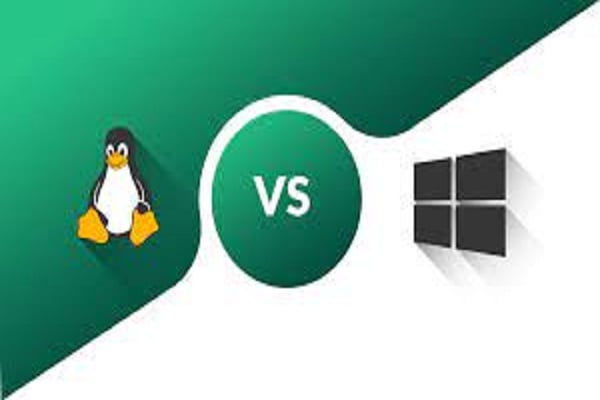Linux or windows server – what to choose?

Decision to host a website is followed by several complex considerations and one of the most overwhelmingly difficult decisions is what operating system to choose for running a web server.
Highlighting differences between Linux and Windows servers
In order to arrive at an informed decision, it is better to understand differences between these two most popular operating systems. Windows and Linux are the most commonly used operating systems by hosting service providers. However, it is worth noting that Linux operating system is present in more than 70 percent servers across the globe. Even the most powerful super computers use Linux operating systems.
Linux operating system offers ease of installation and relatively more economical than Windows operating system. One of the most significant features of operating system is the ease of accessing backend of websites.
If you are using Linux operating system, you will have the convenience of using the most popular control i.e. cPanel. Linux as well as Windows servers are known to support Web Host Manager. In case of Windows servers one has to use Plesk control panel.
Transferring files to the servers is an important task and both the operating systems allow FTP access. If you want to use telnet and SSH access in addition to FTP, then the same is possible with Linux operating system.
Similarly you can access ASP, PHP, Perl, and CGI from both the operating systems. It is observed that these are more prevalent in Linux operating systems.
If you are comparing these two operating systems on the parameter of security, then it would be advisable not to pay attention to claims that try to establish Linux operating system as more secure OS. One should understand that both Linux and Windows equally suffer from the probabilities of virus attacks. As such, the issue of security is more concerned with server hosting administration rather than operating system.
MySQL is the most popular database access system used for running dynamic websites. Linux operating systems are preferred for running MySQL and you will have to use MS Access to run MySQL on Windows operating systems.
There are some not so important differences in terms of how the pages are written in these two operating systems. Linux writes pages as *.html while Windows use *.htm and both the operating systems can support Java Script as well as HTML.
An equally less important difference between these two operating systems is the case sensitivity of Linux Operating System. If name of one of the files is CloudHosting.html and also name another file in the directory as cloudhosting.html, then you will practically have two entirely different pages.
In case, any visitor misses the upper cases, then the result will be 404 error. Windows servers do not have such issues of case sensitivity of file and directory names.
Understanding such minute differences can certainly arm you with better knowledge of Windows and Linux operating systems to make an informed decision. Let us also browse through some of the pros and cons of the two operating systems for better understanding
Pros and cons of Linux operating system
Linux is an open source operating system and hence a highly economical alternative. Users need not pay periodic licensing charges and enjoys seamless compatibility with PHP and many more open source applications.
You can have access to wide range of options including Ubuntu, CentOS, and Debian, just to name a few. If you are comfortable with use of cPanel, then you must think of going for Linux. You can expect to mitigate server load with help of SSH access and it scores over Windows in terms of controls.
Linux server has to be controlled with help of SSH and users should have advanced technical skills to manage the same.
Pros and cons of Windows operating system
Management of Windows VPS Server is relatively more user friendly as compared to Linux servers. The user friendly GUI enjoys excellent familiarity. Microsoft Windows facilitates ease of integration and offers seamless support for development of ASP.NET as well as ASP.
Microsoft Corp. empowers Windows servers by providing regular updates for efficient server operations.
Speaking about cons, Windows servers are relatively costlier that their Linux counterparts. These depend on Plesk control panels and do not support cPanel. It is sold commercially by Microsoft and users need to pay license fees. Windows lacks support of programming languages that are open source products.
We can conclude that if your web project is designed to run by using software and applications developed by Microsoft, then a Windows operating system would be a right pick for you. Whereas, a Linux server can be right for web developers who love to work in an open source environment and are concerned about budgetary provisions.
Linux and Windows operating systems are identical to each other in several aspects. They are designed to cater to similar objectives including efficient data storage, running web applications, and sustain your website availability by ease of resource scaling.
The above mentioned differences, pros, and cons are highlighted with an intention of making you aware about the intricacies of these fascinating operating systems. Use this knowledge to arrive at the appropriate decision.





